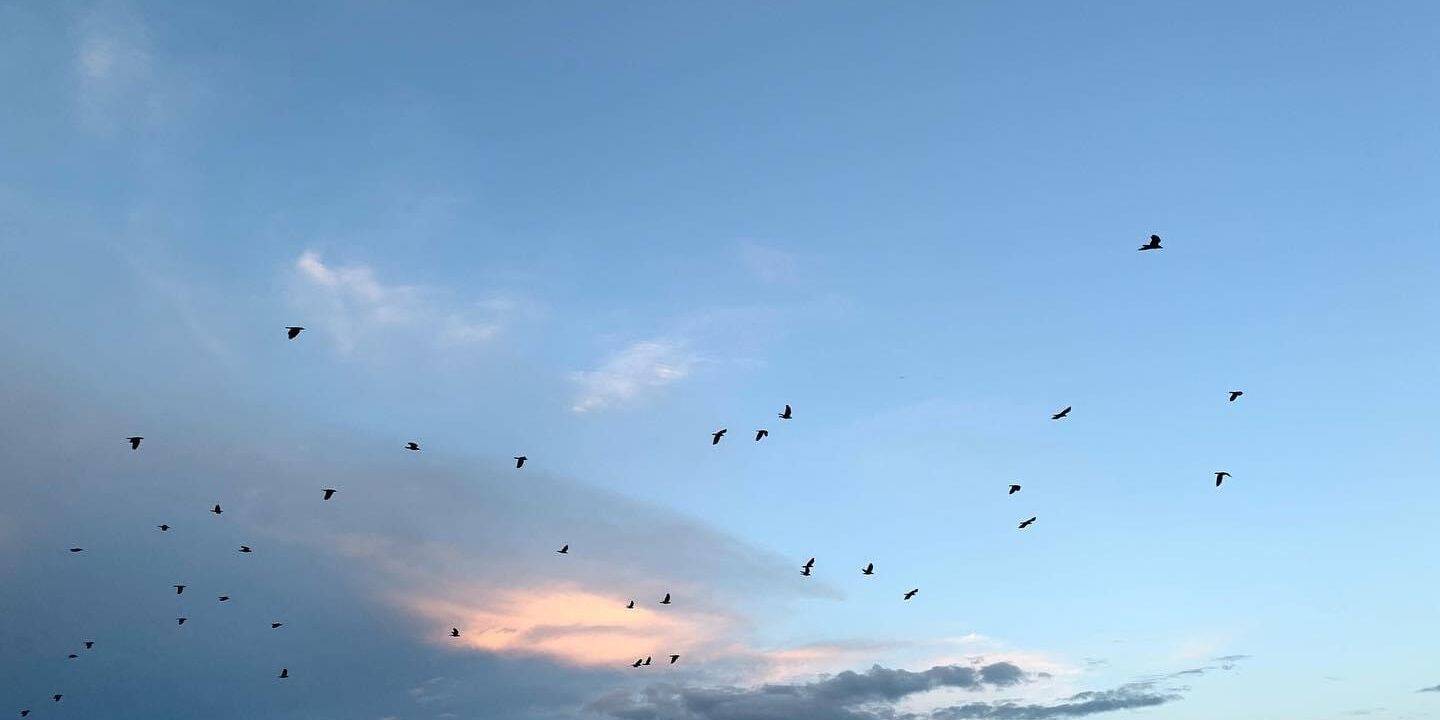Having recently made the decision to move with her family to Sweden, writer, dramaturg and academic Duška Radosavljević Krojer explores the role that improvisation can play on stage and in life.
The Latin roots of the word ‘improvisation’ – im-pro-visation – literally imply the impossibility of fore-seeing the outcome. Improvisation may take place in music or theatre when the performer goes off script or pre-written score so to respond to the moment with a personal impulse. Improvisation is common in jazz or dance where it can often take on a collective form – ensemble members riffing off of each other.
It is a creative practice present in theatre too although the predominance of the script in the 20th century (especially in cultures that honour the written word) has downgraded its value. Once at the very core of forms of performance such as commedia del’ arte, and even of Stanislavskian work on the text and character, improvisation is nowadays primarily viewed in the English-speaking world as a source of fun and games, and not a serious aspect of authorship.
Life, on the other hand, is all about improvisation; and improvisation in real life is very often no fun at all. No matter how well you plan your course of action, disasters happen, wars break out, planes come to a standstill, queens die, currencies crash and you have to respond to the moment with whatever else you have in the place of your original plan.
The question is: what do you have? Do you thrive on adventure and adrenaline, or are you so exhausted from the pressures of neoliberal capitalism that all you have left in the face of the unforeseen is, quite understandably, just fear and anxiety. Is it even a matter of choice at all?
Here’s the mad thing I am doing as part of the grand score of my life story – at the very climax of my biological and professional life, perimenopausal and on the very brink of a full-scale Professorship, I have packed my books, my husband’s records, trunkfuls of selected clothing and my children’s toys in order to migrate, for the second time in my life, and try and start a new life in a country whose language none of us in the family know a word of.
We are a family of four: a German and a Yugoslav in their forties and two typical primary school-aged Londoners. For my German scientist husband the move to Sweden is a way of regaining a sense of European belonging and some sort of long term security after Brexit – he gets a permanent job and, particularly thrillingly for him, an EU health insurance card! The kids get the promise of the Scandinavian-style laid-back free state education and the privilege of growing up in a genuinely family-positive society. And I – get to improvise.
At first the prospect of a new life is completely exciting. Freedom from the familiar trappings, the sense of hope, and the process of itemising all one has to offer is intoxicating and momentarily uplifting. But there is always a trade off involved and a consequent necessity to let go of an element of privilege that goes with one’s hard earned successes.
About a year following our decision to make the move, I am in fact crying out to you from the total darkness of the impossibility of seeing ahead. If this were a recording of a John Coltrane jamming session, and if one were to slow down the playback speed and take it apart, I would be occupying a moment of painful suspense, a moment of possibility for things to either soar into the most sublime never-before-heard combination of notes or to crash and burn completely and come to a standstill of silence.
Some years ago, when I had a job, in order to write an article about the British theatre company Improbable, I attended some of their rehearsals. Improbable’s artistic directors Phelim McDermott and Lee Simpson, who originally met each other through a shared interest in Keith Johnstone’s school of improvisation, were at the time working with a group of actors aged 70 and above on a piece commissioned by the National Theatre in London that would be improvised from scratch every night of the performance. There was no pre-existing score or story of any kind. The piece would be called Lost Without Words; it would be performed on a set of another show, and its content each night would emerge out of a series of randomly chosen exercises that the directors would set the actors in the course of the performance. I remember the first session in which the project was described as a genuine act of risk-taking and readiness to get lost in the woods, while at the same time being able to rely on decades of quietly honed skill and experience.
The company of superheroes with hearing aids, walking sticks and boxes of pills they had to take at regular intervals, used their rehearsals as a means of simply drilling their improvisation skills. All of the actors had trained in the 1960s when ‘improvisation’ had been a dirty word and some of them testified to snobbery they’d experienced from their friends for taking part in this project, yet they were all elated, if at times trepidatious. For most of them this was another in a series of projects they had done with Improbable, and they kept coming back for a reason. One actress told me this was in fact therapy, and that Phelim and Lee were healers and magicians. It took me a while to understand this, but what they found therapeutic was not only the sheer joy of their own creativity and imagination, but the actual way in which improvisation made them rely on their intuition, on the kind of resourcefulness they hadn’t even known they’d possessed until it presented itself in the moment of need. Or the way in which dream logic came to their rescue in the state of apparent wakefulness.
It is incredibly hard to rationally describe this without sounding wishy washy. Improbable however, root the principles of their improvisation practice within a complex set of refined ideas drawn not only from Keith Johnston’s pedagogy but also from Jungian psychology, Open Space technology and Michael Chekhov’s actor training. The priority for Improbable is first and foremost a creation of a robust trust-based working environment in which key to improvisation, it seemed to me as an outside observer, was the resolve to say yes to the unforeseen without judgment or even opportunism, but with mindfulness, curiosity and a valuing of simplicity.
It was the idea of systemic simplicity that first intrigued me about Improbable’s way of working. In an interview I conducted with Phelim back in 2011, he told me about how contemporary organisations and management systems thrive on complexity because this makes it easier for them to control things. Improbable’s preference, on the other hand, are self-organising systems that resemble the simplicity, elegance, and sophistication found in nature: ‘a flock of starlings, birds organising themselves, for example’.
When an opportunity presented itself to my husband to move us all to Sweden, I imagined us as a family of migratory birds, (though perhaps, in our case, one weighed down by suitcases of books, records and toys). Despite the fact that I deeply believe in experiential knowledge, I have come to the realisation that as a theatre academic I have gradually narrowed my work down to watching and listening to others, and increasingly becoming embroiled in those complex systems of control. And now that the time has come for me to improvise, I am not entirely sure what to do…
Real life is not as benign a place as the rehearsal room, so the analogy does not always map out perfectly. But what I am trying to get at here is the possibility that in a situation where ‘seeing ahead’ is not an option, it is perhaps necessary to slow down and *listen in* instead. To get in touch with one’s inner wisdom, to rely on one’s instincts, to stay alert and attend to the faintest messages of one’s inner dream theatre. It is something that as a daytime academic I have never really had time for or known explicitly how to do, but I am finally prepared to say yes to this particular challenge in the greater scheme of my personal life script. I am taking the risk to pause, step out, and ask myself: What happened with my youthful dreams along the way of my perpetual migrations? Do I even remember what they were?
I have no idea what lies ahead or what is coming my way. But, as I proceed deeper into my experience of migration with the ever-ongoing curiosity about what theatre means in different cultures and what we can learn from theatre about life, I will be trying to keep my ear to the ground of my inner auditorium and I will be telegraphing these reports from the audience with my itinerant soul.
Main image: Milica Simonovic
This is the first in what will be a regular column by Duška Radosavljević Krojer
Read part two of Duška Radosavljević Krojer’s Migration Diary: language lessons
Duška Radosavljević Krojer is a writer, dramaturg and academic. She is the author of award-winning academic monograph Theatre-Making: Interplay Between Text and Performance in the 21st Century (2013) and editor of Theatre Criticism: Changing Landscapes (2016) and the Contemporary Ensemble: Interviews with Theatre-Makers (2013). Her work has been funded by the Arts and Humanities Research Council in the UK multiple times including for www.auralia.space (2020-21) and The Mums and Babies Ensemble (2015). She is a regular contributor to The Stage, Exeunt and The Theatre Times.








